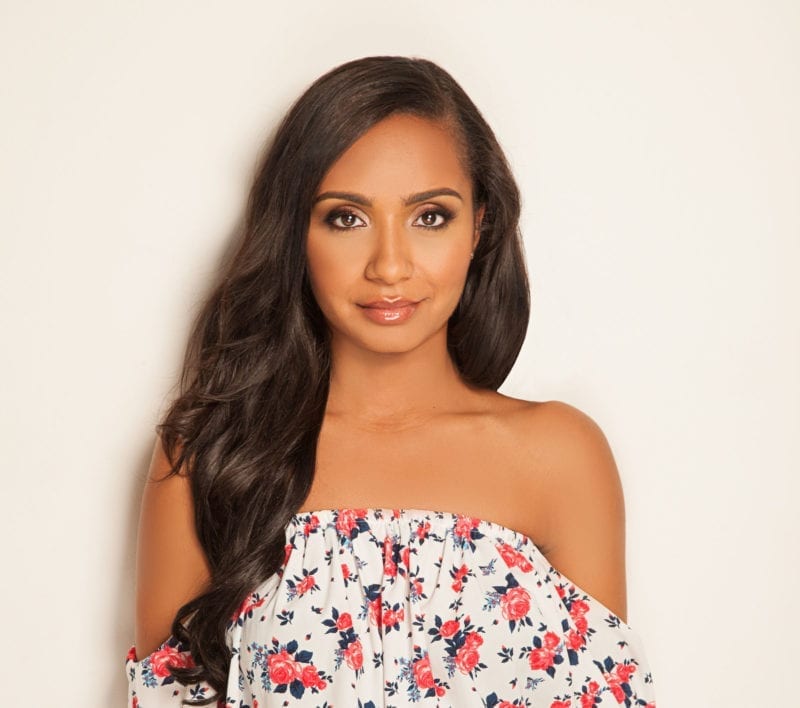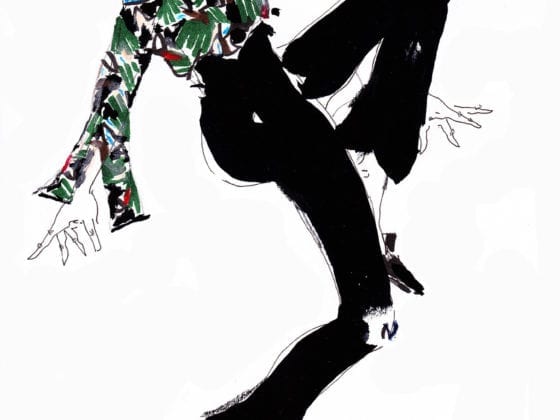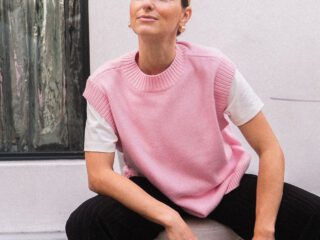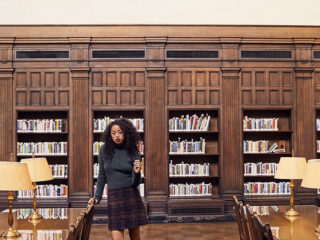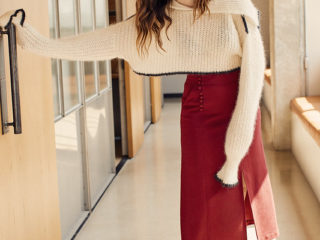“Real Women, Real Work” is a Darling series about everyday women who work in various fields including business, entertainment, science and education. We want to get to know the WHY behind their WHAT and get an inside look into different industries.
Ylleya Fields Evans is a wife, a mother of six, an entrepreneur and a successful, self-published author. It’s safe to say that she’s got her hands full. Fields, originally from South America, currently resides in Cleveland with her family where she works from home on the latest edition of her book series, Princess Cupcake Jones. Although she is passionate about her work, becoming an author wasn’t always in Fields’ game plan, but those plans changed when she saw an opportunity to use books to empower her children.
After having her first daughter, Fields noticed a hole in children’s literature—a lack of Black characters who her daughter could see herself in. Instead of waiting for the problem to fix itself, Fields set out to change it. In 2013, after months of researching and educating herself on book writing, marketing, illustrating and distributing, she published the first book in the Princess Cupcake Jones series.
“I didn’t go into this with a mapped out business plan, but I did have a goal—to write a story based on my daughters and to make something they could be proud of,” she said.
For Fields, creating Cupcake Jones was an organic process as the entirety of her character is based on her daughters. To make Cupcake, Fields mixed her eldest daughter’s images and personalities. Her name was even inspired by a nickname and term of endearment Fields has for one of them. This authenticity was important to Fields, which is why she created her own publishing company to allow her to have complete control over publishing her manuscripts.
Today, there are six books in the Princess Cupcake Jones series. You can find Cupcake dancing at recitals, riding horses or getting lost in the queen’s closet playing dress up. Kids can take Princess Cupcake with them and fall in love with the character over and over again, as Fields also offers clothes, accessories (like backpacks and lunchboxes) and even a Cupcake doll!
Darling got the chance to speak to Fields about her book series and the importance of representation in media. She also has some words of advice for women interested in becoming published authors.
What did you envision your career would look like as a kid?
The truth is you can have the most thought-out plan, and at the end of the day, you are going to end up where you end up. As a child, I thought I’d be a veterinarian. I liked animals, and I grew up on a farm. As a teenager, I wanted to be in entertainment. I went to Clark Atlanta, an HBCU, and majored in mass communications. I got pregnant with my first child and that kind of derailed my plans to go into entertainment.
The truth is you can have the most thought-out plan, and at the end of the day, you are going to end up where you end up.
I decided to go back to school and major in something a little more stable. I went for two years and got my associate’s degree in accounting, and then, I went for two years after that and obtained a bachelor’s degree in business and finance.
During that time, I worked 8 a.m. to 5 p.m. every day, and I went to school from 6 p.m. to 10 p.m. When I got home, my son (who stayed with my mom) was always up because he hadn’t seen me during the day, and we’d spend time together. I did that four times a week. On the other three days, my life was centered around him. It was difficult, but the process helped build character.
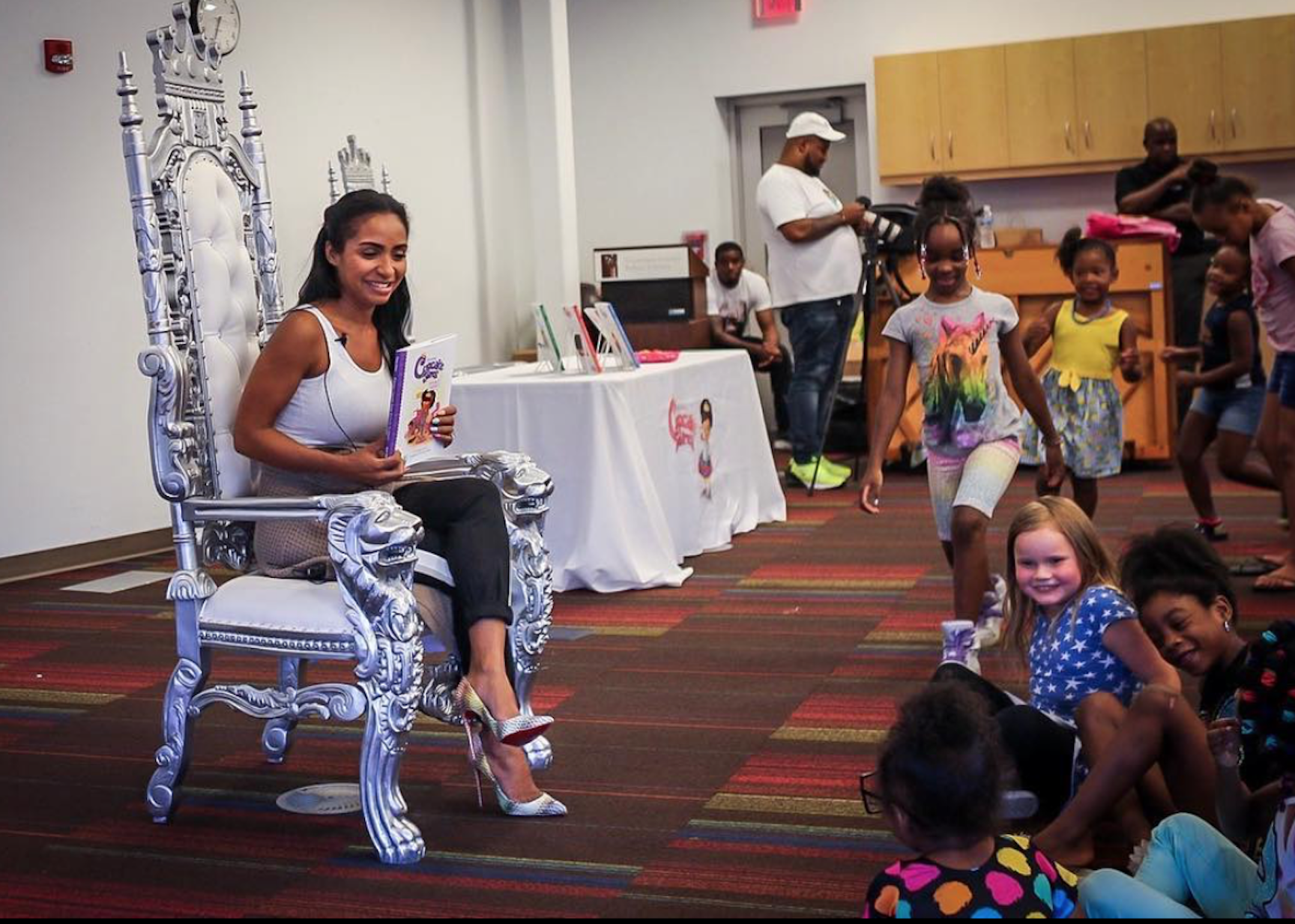
Growing up in South America, did you see a lot of diversity in books and television?
Absolutely not. Growing up, I lived with my grandmother in South America. My family lived on a farm where we didn’t have television service or cable. You really only have local programs, and I have no idea what those were. I did have a VCR, and my mom would send videos.
I watched “Sesame Street” a lot, and I remember there being a person of color on there. We had a lot of books, and I read voraciously. I don’t recall those books being about people of color and that kind of sparked my imaginative side.
Once you realized the lack of diversity across kids’ literature. What motivated you to step up and fill the void?
I didn’t realize how much diversity was lacking in children’s books until I had children myself. Outside of going to school and working, I was completely hands on with my kids. I noticed the lack of representation with my son, but he was what they call “a reluctant reader.”
It wasn’t until my daughter was born, who is now 15 going on 16, that I became aware of the depth of the issue. I wanted to read books to her when she was around 1 to 2 years old, but there were no books with characters who looked like her or who she could relate to. There were no cute and spunky Black characters with regular, everyday issues in children’s picture books.
There were no books with characters who looked like her or who she could relate to.
There were some of what we call self-esteem books with Black characters, which for some children are a necessity, but my child didn’t necessarily need those. She was always comfortable in who she was, as far as her skin and hair goes. What she needed was to see herself in a Black character doing and experiencing regular childhood things.
What was the process like to become a self-published author?
The reason I self-published was because I really wanted to have total control over the character. I wrote these stories because I wanted my daughters to see themselves. I needed creative control of what the character looked like, how she talked and what she wore. These are things you don’t have control over when you go through a traditional publishing house. I refused for that to be the case because I really mirrored the character off my daughter.
I did send the manuscript off, but I wasn’t encouraged to keep trying. I didn’t get any good feedback, and I was really scared that people wouldn’t see my vision.
In the beginning, it really was trial-and-error. I made some mistakes that I had to learn from. For example, I didn’t realize that you had to hire a lawyer because if someone is illustrating a character for you, then they should sign a work-for-hire contract. Otherwise, it’s deemed their property.
You have to learn these things by being in the business. If you have never published a book before, how would you know? There is definitely a learning curve. For me, self-publishing has been the right way to go. I was able to take ownership over the character and the writing itself.
Self-publishing has been the right way to go. I was able to take ownership over the character and the writing itself.
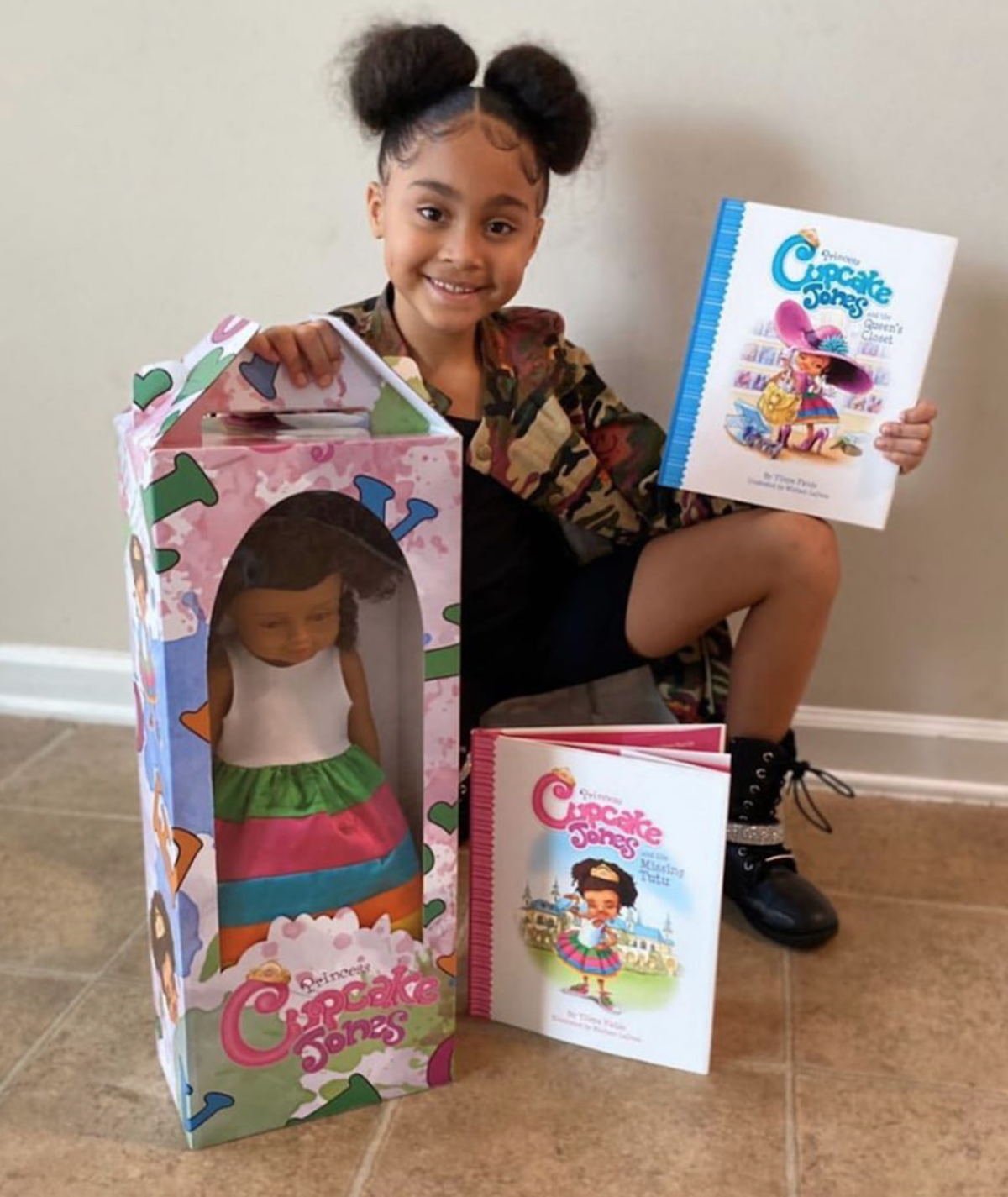
The lead character in the Princess Cupcake Jones series is a blend of your daughters. What parts of your daughters’ personalities does your lead heroine have? How did they react when they learned the character was inspired by them?
She is curious, smart and brave just like my daughters. Most little kids have some of those characteristics. She also looks like them. The stories are all based on our real life experiences. When Cupcake is playing in her mother’s closet or when she is not cleaning up, these are all things taken from actual events. She represents my girls in so many ways.
My daughters were super excited to know that the character is based on them because there was nothing like it at the time. I can’t say they understood the magnitude of writing a series like this because they were so young, but they understood that they could relate to Princess Cupcake and that their mother had created it.
I now have two younger daughters who have taken ownership of the characters. My two youngest, Grey and Phoenix (Donna and Dakota are the oldest) think this was made just for them. They think it’s about them. They are super proud and excited. They are literally my biggest fans.
Why is representation of Black culture in the media important for children to see?
Representation is a necessity. It drives home the point that you can be anything you want to be. My daughters see Princess Cupcake Jones and know they can be a queen or a princess. It also allows others to see that people (no matter their race) are not bound to stereotypes. They can be anything. That message is necessary, especially in today’s climate.
[Representation] drives home the point that you can be anything you want to be.
What has been the most difficult and the most rewarding part about publishing your own book series?
The most rewarding part is my children. They get to experience it, and they have ownership of it. They get to read it, share and see themselves represented. I set out to write this for them. It has evolved and gone much further than that. That has been the pinnacle—to be able to go past my two oldest daughters and for other people’s children (and now my youngest) to read it together and relate. It’s beyond anything I could have imagined. It’s not something I ever thought about when I started.
The hardest part is to get something meaningful across to everyone. There’s so many people who don’t know that Princess Cupcake Jones exists. Trying to get the word out—not just to African American parents and children—but to everyone is the goal. All moms have to diversify their children’s reading lists. This means opening your children’s world up to diverse faces and not just what they’re used to seeing.
What can families and readers look forward to next from you and from the Princess Cupcake Jones series?
I do have a sixth book about how Cupcake is now having a new brother. It’s about how children are affected by new kids coming into the house—something I know a lot about with six kids! I would also love for Princess Cupcake Jones to become a TV show. That’s my goal—to move out of the book realm and to have more exposure for this story.
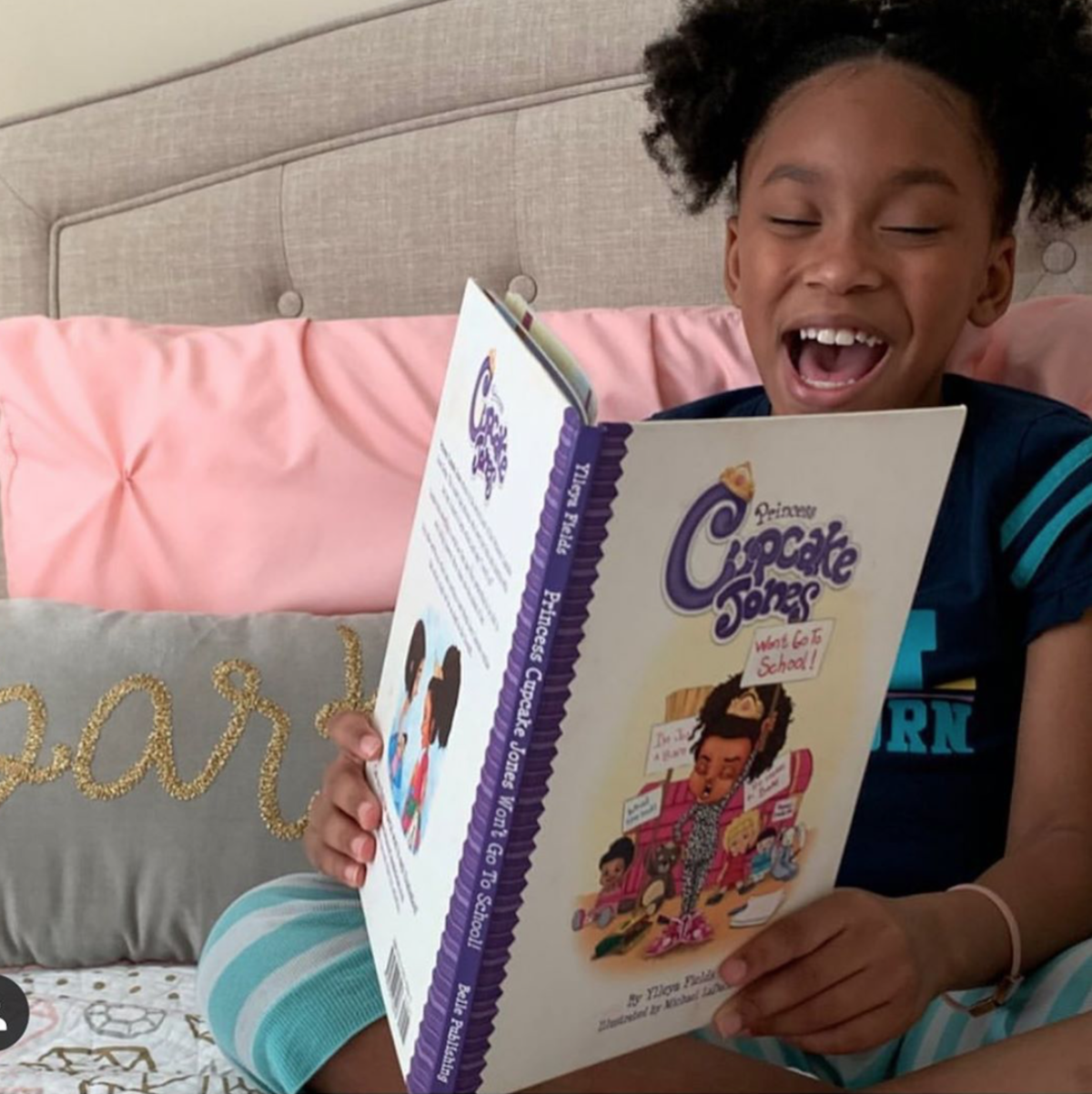
If there are any women interested in publishing their own book, what advice would you give them?
Write what you know—that’s the key for anyone who wants to write. Don’t write about something you don’t have interest in or don’t know. If it’s children’s books or sci-fi where your interests lie, write that.
Also, for women with children, be sure to make time for yourself. There was a time when I only thought about my children. There will never be a perfect time to pursue a dream, but there’s also never going to be a better time. The time is now.
There will never be a perfect time to pursue a dream, but there’s also never going to be a better time.
What advice do you have for your younger self?
Don’t stop. I remember there was a time when I said to myself, “Forget this. I don’t have to write these books. It’s fine,” but I didn’t quit. When things get difficult, you don’t want to do it anymore. It’s always easier to run and to quit. Don’t stop. Keep going.
For more from Ylleya and the Princess Cupcake Jones series, follow along on their website and on Instagram!
Featured Image via Stephen Midgett, Images provided by Ylleya Fields Evans

